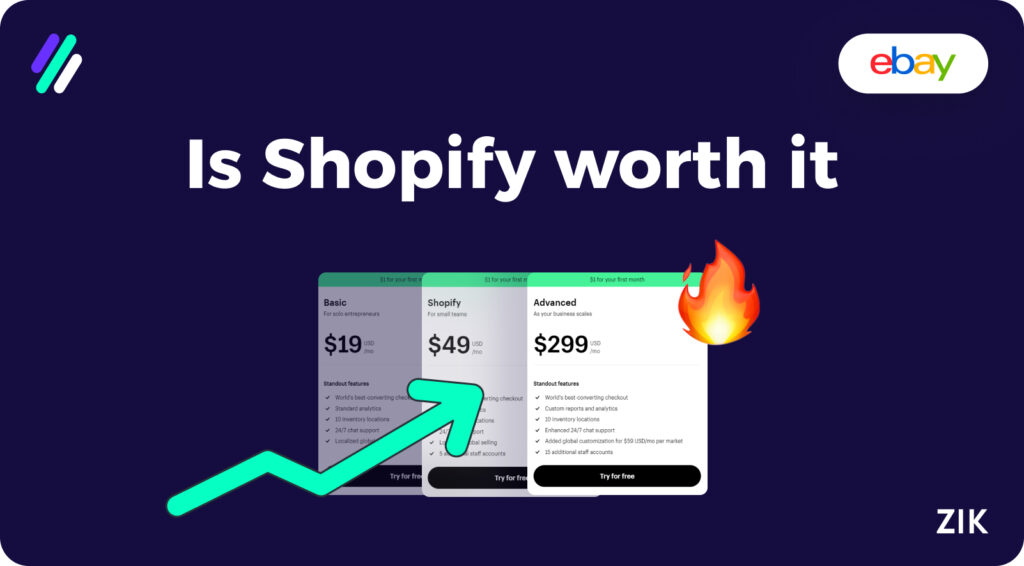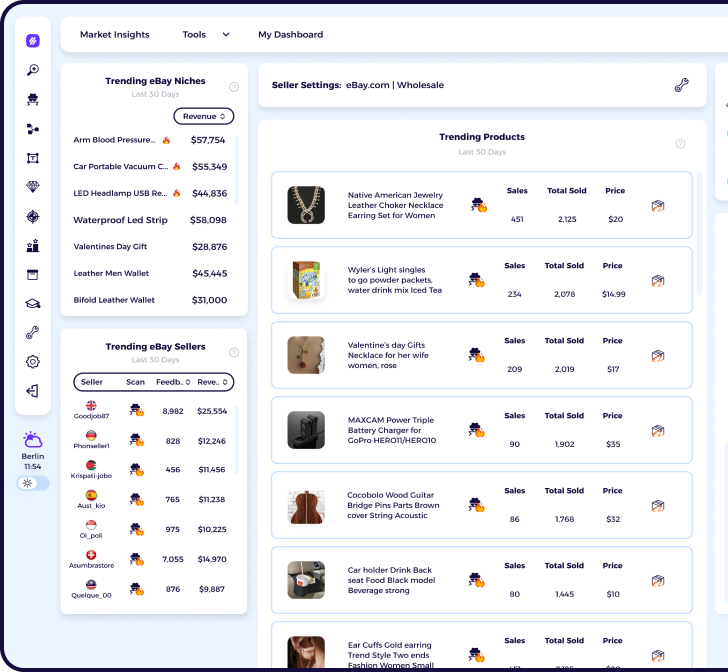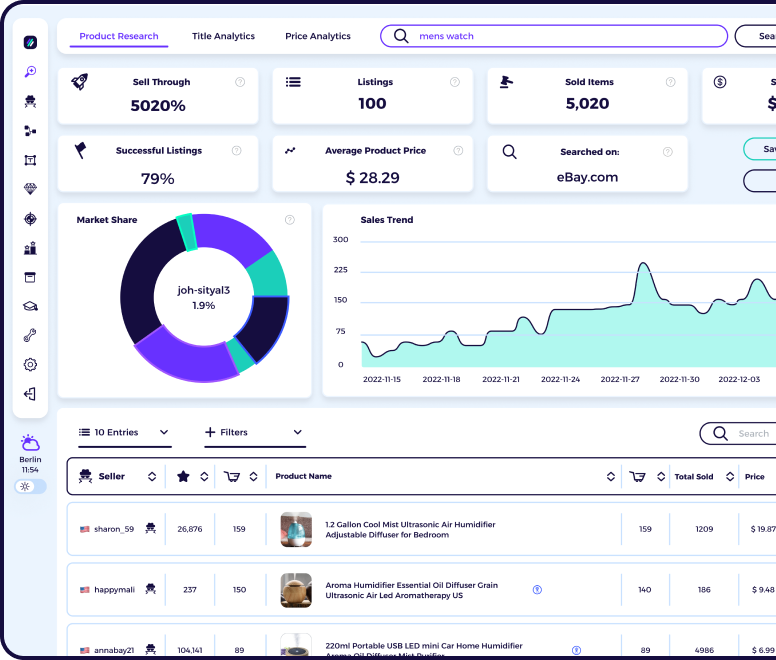Shopify, eBay, WooCommerce, Big Commerce… the list goes on when looking for the best ecommerce platform for your online business.
It can be overwhelming, especially for a beginner, because these ecommerce platforms have overlapping features and functionalities. Choosing the best platform for your online store requires extensive research and aligning with your ecommerce store goals.
That is why I bring you this detailed guide on the Shopify platform, which is one of the leading ecommerce platforms to build an ecommerce site.
I, too, was once a beginner in the ecommerce business, and was in the same position when choosing the best e commerce platform for selling online. It can be overwhelming if you don’t know what and where to start.
That is why I have created this guide to help navigate this situation, allowing you to pick the right ecommerce platform to suit your business needs. Combining my selling experience and industry research, we will focus on Shopify for online businesses and how to make it worth it.
Is Shopify worth it? Keep reading to find out how it compares to the best e-commerce platforms in the industry.
Key Takeaways
- Shopify is one of the most popular e-commerce platforms because of its ease of use and flexibility to suit various business needs.
- Shopify offers varied pricing plans to make setting up a store that suits your budget easy.
- Shopify provides numerous sales and marketing tools to scale your store as your business expands.
Article Overview:
How Does Shopify Work?
Shopify Pricing Plans
Shopify Themes and Website Builder
Shopify Sales Tools
Shopify SEO & Marketing Tools
Shopify Pros & Cons
Is Shopify Worth It?
FAQs
How Does Shopify Work?

The Shopify website builder and ecommerce platform are suited for beginners and online selling experts alike. Many consider Shopify the best e-commerce platform, especially for small businesses looking to grow.
Shopify is a website builder that makes it easy for anyone wanting to sell online to build a scalable online store. It has hundreds of built-in e-commerce features, themes, apps, and tools that provide vast customization options.
Therefore, it is easy for e-commerce store owners to build a website that fits their brand and product offerings. Shopify allows you to sell products from your website or other sales channels, such as social media.

What is great about Shopify for building an ecommerce website is that it allows you to drag-and-drop various website features. Even if you have no coding knowledge and experience, it’s possible to create good-looking websites with various e-commerce features. You can integrate third-party apps from the Shopify app store to add more functionalities and e-commerce solutions to your online business.
If you want to start selling online, check out this detailed Shopify review to determine if it is the right ecommerce platform for you.
Shopify Pricing Plans
Choose from various Shopify pricing options to build an online business, regardless of the business model. Despite being one of the most popular ecommerce platforms, Shopify offers a free trial, with an option to subscribe to a Shopify plan for $1 for 30 days.
The best part about the Shopify free trial offer is that you won’t be required to provide your credit card information; you only need to send your email to get started.


Basic Shopify (Most Popular)
The most popular Shopify plan option is the Basic Shopify plan. This plan is recommended for beginners because it is affordable and provides the basic e-commerce solutions you need from this platform, such as high-converting checkout, standard analytics, chat support, and localized global selling.
The Basic Plan is available as an annual subscription for $19 per month or a monthly subscription for $25 per month.
Shopify
The next plan is Shopify, which is recommended for small businesses with teams of five or fewer. It is available for $49 per month on an annual subscription or $65 if you pay monthly. In addition to the same features available from the Basic plan, you can also get five additional staff accounts.
Advanced Shopify
The Advanced Shopify plan is ideal for growing ecommerce businesses. As your business needs change, this plan can help you thrive and stay competitive with 15 additional staff accounts and added global customization (for an additional fee).
The Shopify pricing for this plan is $299 monthly on an annual subscription or $399 if you pay monthly.
Shopify Themes and Website Builder
Shopify excels in an industry filled with various e-commerce platforms because it is a website builder with multiple customizations. To start building your website, you will choose from hundreds of customizable templates.
You can narrow down your choices of Shopify themes based on whether they are free or paid or the specific niche or category for your online store.

Branding is crucial for e-commerce businesses because you want to differentiate your business from others selling in the same niche. Shopify offers themes that help you deliver your branding to your target audience in a way that makes for an immersive shopping experience.
Once you choose your customizable templates, you can integrate various design elements and features to suit your needs. Thus, it is possible to create a one-of-a-kind design for your website.
Aside from building a website, you can unlock multiple selling channels. Shopify offers this great solution because it allows you to reach your target audience no matter where they are, ensuring that you can make more sales online.
When you create your Shopify account, you can set up a custom domain for your website or the default domain from Shopify. Getting a custom domain is recommended to boost your branding effort.
In addition, you will get a free hosting provider from Shopify. Thus, it simplifies the business set up process to ensure you can easily build a functional website, even without prior experience.
Shopify Sales Tools
Access to sales tools is a vital consideration when choosing Shopify or other platforms for an e-commerce store. Shopify has one advantage over other e-commerce platforms because you can access tons of tools that make your online store and website management highly efficient.
Let’s investigate these tools further so you can maximize their use.
Product Management

Shopify’s inventory management capabilities make it easy to manage your products. From the Shopify dashboard, you can monitor stock levels, order history, and update your product listings.
You can even set up alerts and notifications, so you are always one step ahead of inventory management and avoid customer disappointment when your products sell out!
In addition, it is easy to add product variations to your product pages. You can even set it up to include different pricing according to the product variation and weight.
For example, if you sell a jacket, you can set it up to offer different pricing based on the color or size.
Apps Integration

The Shopify app store offers over 8,000 apps, which makes it easier to increase the functionality of your website. Like the Shopify Theme Store, the App Store offers paid and free apps.
Some apps you could integrate into your store are reporting and analytics, store reviews, automated invoicing, loyalty program apps, and more.
These apps increase the capabilities of running your online store aside from the built-in ecommerce tools and features available.
Dropshipping
You can do so if you want to sell on Shopify using different business models, like dropshipping. Dropshipping with Shopify is one of the most profitable business models online, and you can take advantage of this to sell online without investment.
The low upfront cost of dropshipping with Shopify is ideal for beginners and online store owners who want to generate an extra income stream.
However, Shopify does not have built-in dropshipping functionality, so you can install a third-party dropshipping app.
Payment Processing
Accepting payments for customer orders via your Shopify store is easy with various payment processing options. Shopify supports up to 100 third party payment gateways, including PayPal, Amazon Pay, and Apple Pay.
The platform also offers its own payment processing gateway, Shopify Payments. If you choose Shopify Payments for your online transactions, any transaction fee is waived. But if you use third party payment gateways, standard processing fees apply for each transaction.
There is also an option to set up multiple currency payments on a Shopify store. This allows your customers to pay in their preferred currency, which means Shopify caters to global selling, allowing you to expand your store’s sales potential.
Abandoned Cart Recovery
All Shopify plans offer the abandoned cart recovery function, an excellent ecommerce tool that detects when customers leave items in their online shopping carts. This feature automatically sends an email to a customer to remind them about order completion.
This tool increases checkout on abandoned carts by up to 70%! Therefore, any online store owner must have this tool to maximize their sales earnings.
Shipping
From your Shopify dashboard, you can set up shipping based on your specific needs or customer preferences. You can adjust shipping rates based on the item weight and size or shipping location. You can also print shipping labels using most of Shopify’s pricing plans.

Although shipping is one of the trickiest parts of running an ecommerce business, Shopify simplifies this process for you.
Shopify SEO & Marketing Tools
Setting up an online store is not enough! You must help your customers find you online, and that’s what Shopify SEO is for!
Shopify provides a wide range of SEO tools, including customizing the header code and the website URL. Shopify even provides prompts when you list your products to ensure you follow the best SEO practices.
In addition to basic SEO features, Shopify has blogging functionality. You must take advantage of this feature to boost your search engine optimization and help your store get found online.

There is also a reporting tool on Shopify, which store owners must utilize to analyze where their sales are coming from and what marketing tweaks they can do to improve sales performance.
The level of reporting and analytics you can get varies according to your chosen plan, so keep this in mind when planning your marketing strategy.
Shopify Pros & Cons
Identifying Shopify’s pros and cons will give you a better idea of its worth. With many Shopify alternatives, you must balance the platform’s benefits and drawbacks to make an informed decision.
Shopify Pros
- User friendly interface
- Extensive customer support
- Multiple payment options
- Global selling features (such as multiple currencies)
- Multiple channels selling
- Customizable themes (and free ones available)
- Diverse pricing plans
- Free hosting provider
- Vast SEO and marketing tools
Shopify Cons
- Transaction and processing fees are high
- Limited customization due to limited availability of free themes
- Detailed reporting and analytics limited to higher pricing plans
- No email marketing hosting
Is Shopify Worth It?
Shopify is the leading ecommerce platform for a reason. It has vast features and functionalities that make online selling efficient and user-friendly.
A solution is available if you want to make money selling online or scale your Shopify store. You must align your Shopify solution to your business needs to ensure you can maximize what the platform offers.
FAQs
Can you really make money on Shopify?
Shopify is known as one of the best ecommerce platforms, but nothing is guaranteed when it comes to selling online and making money. Your success (the ability to make money online) depends on various factors, such as your marketing strategy, sales channels, product quality, pricing strategies, and competition.
If you employ the best strategies to sell online, you can succeed like other Shopify sellers who earn from hundreds to thousands monthly.
Is Shopify worth it for beginners?
Yes. Shopify is the best platform for beginners because of its user-friendly interface and e-commerce solutions that make online selling easy and efficient.
Users can explore various customization options regarding where they sell or their design for their product pages, checkout, and the entire ecommerce website.
In addition, you can choose various Shopify pricing plans, making it a great option for small businesses. With a limited budget, you can set up your Shopify account and store, allowing you to scale according to your business needs.
What are the disadvantages of Shopify?
The primary disadvantage of selling with Shopify is the high processing fees. If you’re starting with the basic plan, you can get higher processing fees per transaction.
In addition, Shopify users have limited design options if they choose the free Shopify themes. If you want more customizable and premium themes, you must spend about $300 per theme.
Is Shopify the best e-commerce platform?
Many Shopify users believe that Shopify is the best platform for ecommerce businesses. However, it depends on where you are on your online selling journey and your business needs.
If you want a self-hosted website with customizable themes and vast ecommerce features or marketing tools, Shopify is worth it. You can access every aspect of your online store from the Shopify dashboard, making it easier to run your business anywhere.






